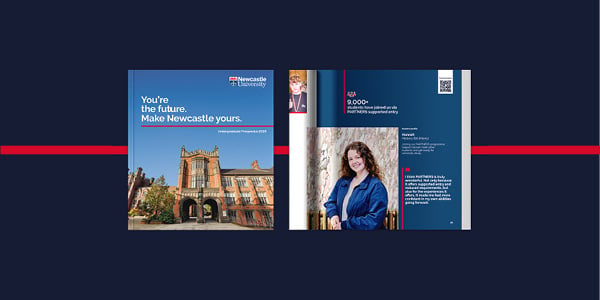The UK university admissions process – how to apply
1 July 2025 | By: Peter Jackson | 2 min read-1.jpg)
Wondering how to apply to a UK university? Confused about the process, or the information you'll need to supply as part of your application?
There's lots to think about when you apply to study in the UK, but don't panic, it's not complicated. Read on for some simple, step-by-step advice.
Contents:
- Before you apply
- Putting your application together
- Your personal statement
- Completing your application
- What to do next
Before you apply
Hopefully, you've already carried out lots of research before deciding to study in the UK and know which universities you want to apply to.
If you haven’t, then you aren’t quite ready to begin your application. We’d recommend looking at prospectuses, signing up for virtual fairs and watching videos from universities to help make your choice.
Once you've drawn up a shortlist of universities, you'll need to register with UCAS (Universities and Colleges Admissions Service). Using this online service, you'll create your own UCAS Hub where you'll be able to choose - and apply to - five different courses that you'd like to study.
You'll be able to edit your UCAS application and return to it at any time, but you need to make sure you have everything you need before starting the process. Important information - such as your qualifications and personal details - need to be included, so make sure you have these ready.
Later on in the process, you’ll receive offers from your universities, and be able to make your final decision.
-1.jpg?width=1024&name=New%20Project%20(27)-1.jpg)
Putting your application together
Once you’re happy with your five choices, you’re ready to start the application.
First, you'll need to enter all of your basic contact information. As with any important form, make sure all your details are correct. If you change your phone number or address, then don’t forget to update your details in UCAS, too.
Next, you'll enter your university choices.
You don’t need to worry about putting them in order of preference, as your choices are only seen by you and UCAS.
You'll also need to include details about your education, qualifications and work experience. Add any extra courses you’ve taken and any part-time jobs you’ve had, too - especially if they're relevant to the course you’re applying for.
Your personal statement
One of the most important sections of your application will be the personal statement. This is your opportunity to explain exactly why you want to study a particular course at each of your chosen universities. It's also your chance to promote yourself in a positive way and impress university admissions teams.
You'll only write one personal statement which will be sent to all of your university choices, so don't include the names of individual institutions!
If you're applying to go to university in 2025, your statement will be in the form of an essay. For 2026 entry, your statement will be split across three questions.
In both cases, you'll only have 4,000 characters to showcase your skills and ambition, so make sure they count!
Here are a few quick tips for writing a personal statement:
- talk about why you're interested in a subject
- cover any relevant hobbies or extracurricular activities
- use specific references to show your passion
- list skills that will be relevant to your studies
- find a way to stand out from the crowd
Make sure you have a teacher check over your personal statement. They can help you fix little errors and any spelling mistakes you might have missed. They can also review the statement to make sure everything you’ve said is engaging, relevant and helpful to your application.
You can get more detailed advice about writing a personal statement for 2025 entry in our blog. We've included some tips on what UK universities look for, and how to make your statement standout.
Completing your application
As part of your application you'll need a written reference from a teacher or tutor who can recommend your academic work. You'll also need to pay an application fee.
For 2025 entry this costs £28.50 for up to five choices. The fee for 2026 entry has yet to be released.
Once you’re happy with your application, you’re ready to submit it!
What to do next
It shouldn't take long for universities to get back to you.
You'll be able to check the status of your applications in your UCAS Hub. You'll also receive emails to let you know when a university has issued a response.
While you're waiting you can use the time to plan ahead. Think about the things you'll need to do before you arrive in the UK - such as applying for a Student visa, where you'll live while you're at university, and what you'll need to take with you.
You can find the answers to these questions and more in our Belong blog.
Find out more:
- Discover why international students should choose Newcastle University
- Explore how we support our international students
- Read 10 things you should know about studying in Newcastle

Discover the Newcastle experience: Our Undergraduate prospectus will guide you through our world-class degrees, the support you can benefit from, and our beautiful city-centre campus.
